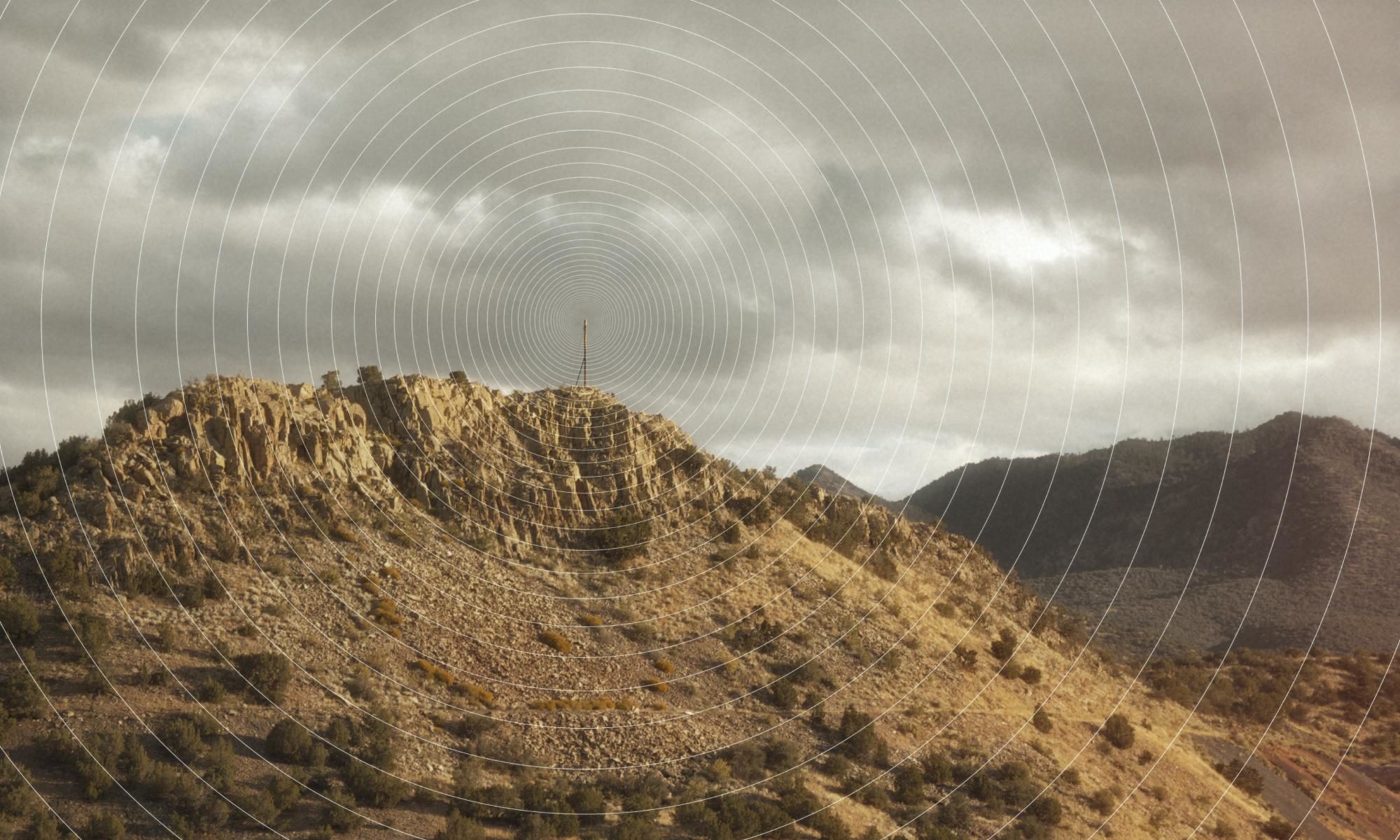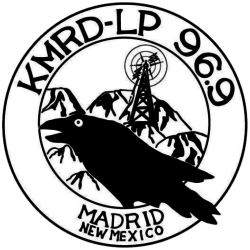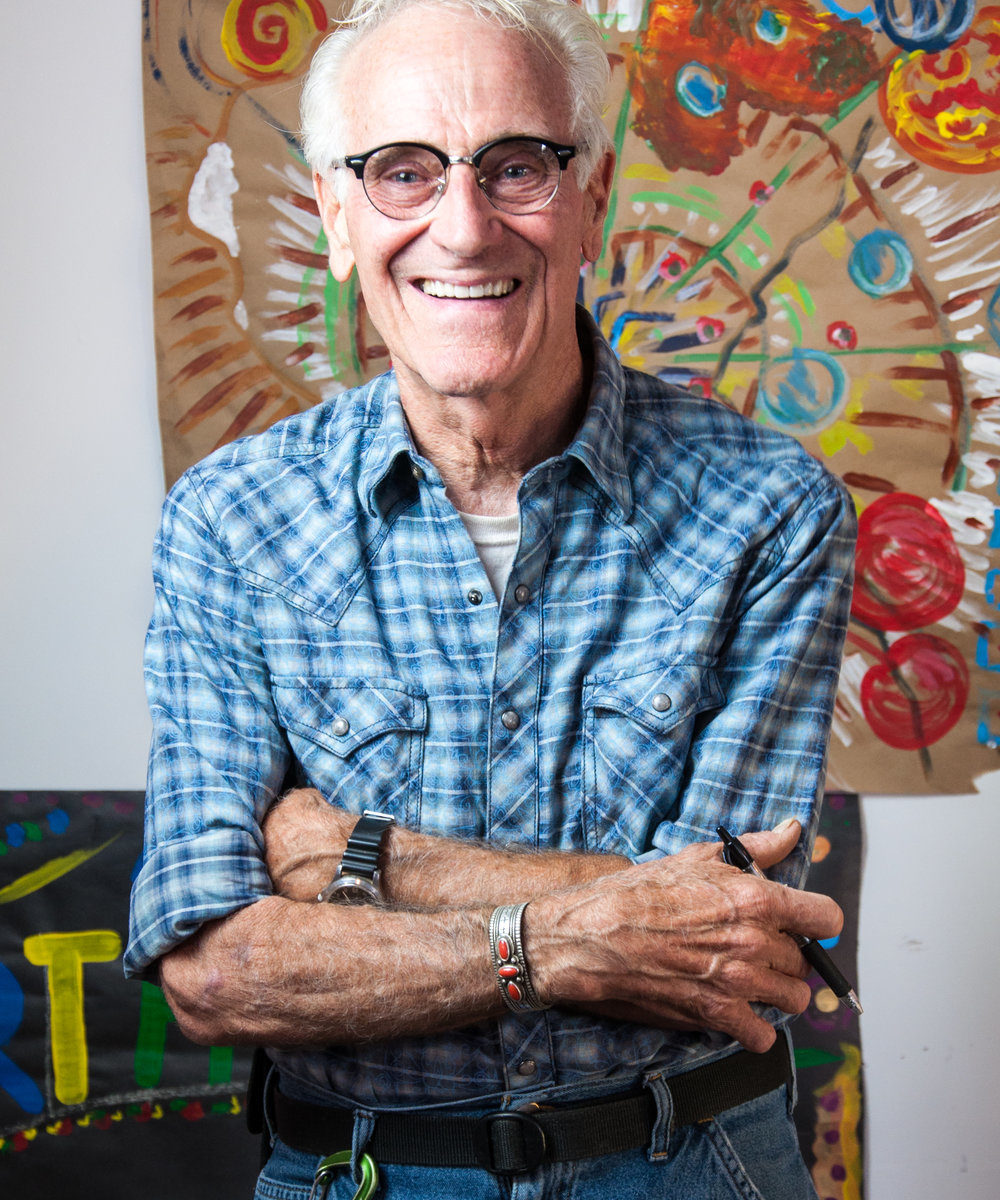What is your name and DJ name?
My formal name is Frank Joseph Rolla and my DJ handle is Frankie John Hollerin’.
Hollerin’ is also a style of singing, but it’s meant to be dialogue or language over great distances, where only the voice was used, and then it became a song-like thing, and then people started to do it together. It was my stage name that came first, and not long after the opportunity came along to do a show here.
What is the name of your show?
Life Along the Hogback. [8-10pm, Mondays.] It’s metaphoric, in that “The Hogback” refers to that geological, sandstone mostly, formation that parallels the Rocky Mountains from way up in Canada, all down through the States, and into Mexico. I’ve lived in a variety of different places along the Hogback. When the show opportunity came, I was really thinking about music, as it’s been developed and has evolved and has been sung all along the Hogback. It became metaphoric in that language, music, culture, dialogue, all of that stuff is transmitted all along there, and it changes and evolves up and down that in both directions – it is a major source of a specific culture, mountain culture primarily, but there are parts of it that are desert. And so after some thought, I thought that’s a lot of space where you can move and develop that metaphor of accumulating creative data and stimulus of which is formed into music, object-building, image-making, story, narrative. Gosh, it sounds like a radio program!
What is the format of your show?
The format is one that builds over the evolution of the individual show itself, but also over a series of shows. I learned after the first eight months to a year of doing the show here that it was changing my mood, changing my attitude, changing my perspective on contemporary music in all forms, including hillbilly music. I would go into the program and I’d be in a lousy mood, and within five minutes of being in the show I’d be so absorbed in the music that I’d come out of the place completely transformed – I mean, joyous. And also hearing things in the music that I’d heard many times before, but never recognized. And so it’s been transformative, personally transformative, and that’s what I’d want to convey to the people listening.
What drew you to participate in KMRD? What is the appeal of having a radio show? How does it fit into the rest of your life, and what difference has it made in your life?
I build instruments; I’m a sculptor and a fabricator. I build experimental instruments and I work with a number of other musicians as I’ve always done. I build instruments that are have anthropomorphic qualities and make sound, that I can manipulate in real time.
When I was a kid, I was really interested in ham radio stuff, and radio, and taking stuff apart, and music. My grandfather got me an accordion… in short order the guitar came along, and folk music, and the banjo – they all have different voices.
I was first at KUNM in the ‘70s, where the show called Folkstream became mine and I had that show for seven, eight years. I’m working with the same equipment here that I work with a lot at home, however there’s a slightly different aspect to this in that there’s a precision here and not a playfulness. You’ve got to modulate your levels at an even keel… how you just make radio. In the absence of recorded music, how would you do that? Well, that’s the stuff that new music kind of grows out of – the creation and presentation and concertizing. So there is that aspect of doing the radio program – what interests me a lot about new music is spontaneity but setting up some reference points in advance. How can I do that with a list of commercial recordings at my disposal?
Because I’m an instrument builder and a sculptor, and because I’m a musician, and so I look at objects and how it fills a volume, or how it doesn’t, or how it supercharges a space – same thing with sound, like how you can just pump a lot of juice into a vibrating cavity and get some unpleasant things, but also some unknown things. Radio can achieve the same sort of results: surprise, joy, care, and lethargy, anything that can be expanded on in the studio.
What are your hopes for your show? For the station?
I want more feedback. I want to know who’s listening. My family gets together in Colorado Springs, and they play poker on Monday nights and they tune into my show.
To continue this unorthodox collaboration – this element of surprise. In the space of a handful of years, from this little basement that would survive a direct hit from a bomb – it was magic. My hope is that the station should just continue on the trajectory that it’s on now, because it’s really working nice! It’s really working fine.


